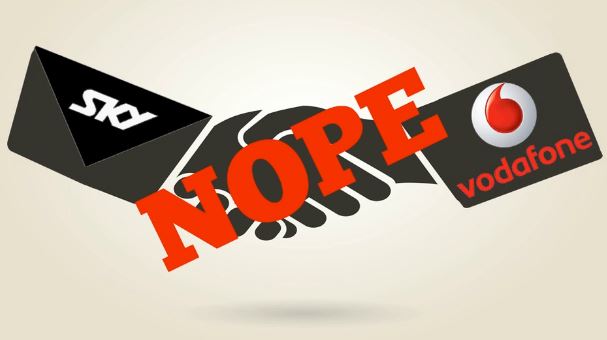
The Commerce Commission has refused clearance for the proposed merger of Vodafone New Zealand and Sky Network Television in a much-predicted decision earlier today.
Vodafone and Sky confirmed they were in discussions about a possible merger in June 2016, and, unsurprisingly they faced a flood of opposition from competitors. Vodafone sought clearance to acquire up to 51% of the shares in Sky, and Sky had also sought clearance to acquire up to 100% of the assets and/or shares of Vodafone. If the deal had proceeded the merged Sky/Vodafone entity would have been controlled by Vodafone Group.
On February 22nd 2017 the High Court of New Zealand ruled it would order a short-term stay in the event the Commerce Commission did clear the merger, following requests from Spark, 2degrees and InternetNZ.
At the time, Spark had gone on record as saying without the stay, there was a risk that Vodafone and Sky would immediately take steps to implement the merger and make it a ‘fait accompli – which would render any future legal review a meaningless exercise’.
However, that stay is now redundant as the Commission said it had not been able to exclude the 'real chance' that the merger would substantially lessen competition.
The Chair of the investigation Dr Mark Berry said the Commission outlined its concerns with the proposed merger in a Letter of Unresolved Issues in October last year and subsequent submissions had not resolved these concerns.
In response, the Vodafone chief executive Russell Stanners says Vodafone will carefully review the Commission’s statement and consider all courses of action.
“We are disappointed the Commerce Commission was unable to see the numerous benefits this merger brings to New Zealanders,” he says.
The main issues from the proposed merger come in the fact that it would result in a strong vertically integrated pay-TV and full service telecommunications provider in New Zealand, owning all premium sports content meaning a significant lessoning in competition.
“We acknowledge that this could result in more attractive offers for Sky combined with broadband and/or mobile being available to consumers in the immediate future,” he explains.
“However, we have to take into account the impact of a merger over time, and uncertainty as to how this dynamic market will evolve is relevant to our assessment,” Berry said.
“Internationally, the trend for bundles that package up broadband, mobile and sport content is growing. Given the merged entity’s ability to leverage its premium live sports content, we cannot rule out the real chance that demand for its offers would attract a large number of non-Vodafone customers,” he explains.
Berry says to clear the merger the Commission would need to have been satisfied that it was unlikely to substantially lessen competition in any relevant market.
“The evidence before us suggests that the potential popularity of the merged entity’s offers could result in competitors losing or failing to achieve scale to the point that they would reduce investment or innovation in broadband and mobile markets in the future,” he says.
Berry says the Commission would have particular concerns that this could impact the competiveness of key third players in these markets such as 2degrees and Vocus.
This will not be the end of the story… so make sure you stay tuned as there will be more to come on this. The changing nature of broadband and pay TV in New Zealand mean that Sky have to do something to halt their decline… what that is remains to be seen…
A version of this story first appeared on NetGuide - view that here.